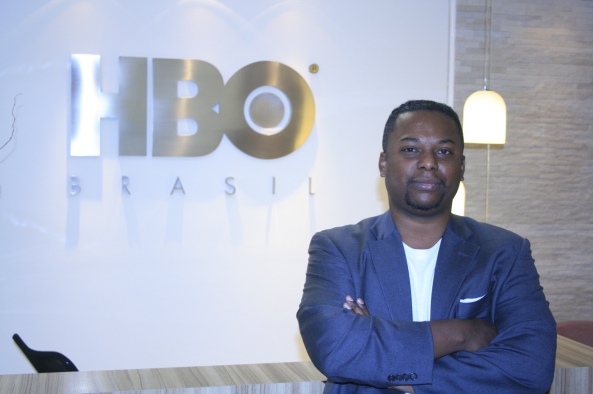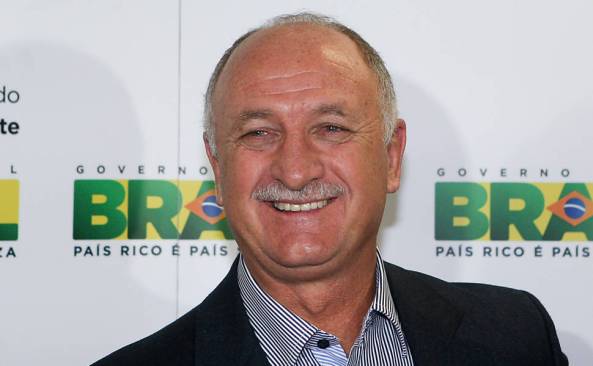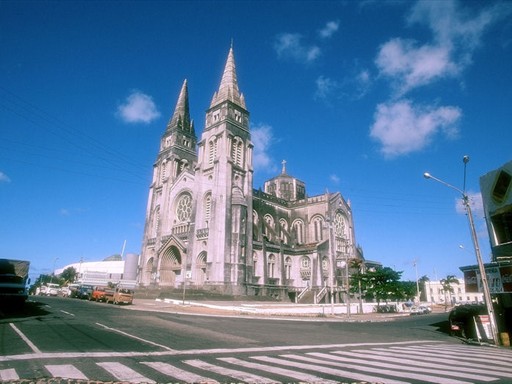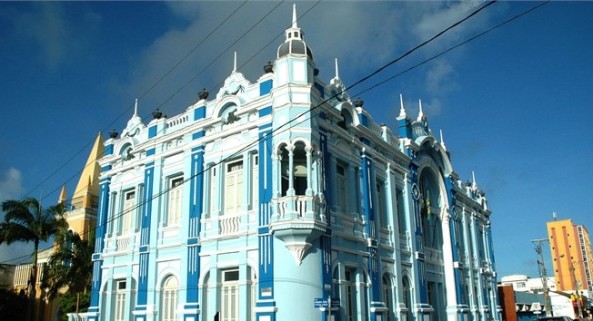Empresa de Eike discute novo Maracanã em reunião com governo antes de licitação
Vinicius Konchinski
O governo do Rio de Janeiro ainda não lançou o edital de licitação do Maracanã, mas um represente seu já participou de uma reunião com a IMX, companhia do bilionário Eike Batista, e dirigentes esportivos para discutir o que será feito do complexo esportivo do estádio após sua privatização. O vencedor da licitação administrará o Maracanã por 35 anos.
PRESIDENTE DA IMX DEIXA MARACANÃ
-
Vídeo obtido com exclusividade pelo UOL mostra o presidente da IMX, Alan Adler, deixando o complexo esportivo do Maracanã após uma reunião com representante do governo e o presidente da CBDA (Confederação Brasileiro de Desportos Aquáticos), Coaracy Nunes. Nunes disse que Adler e ele falaram sobre a privatização do Maracanã.
A IMX já declarou que quer assumir o Maracanã. A companhia é parceira da multinacional IMG Worldwide. Formalmente, o consórcio formado pela IMX e a IMG disputará o controle do espaço com qualquer outra empresa que atender requisitos do edital da privatização.
Contudo, enquanto o governo prepara esse edital, a IMX participou de uma reunião com gente do próprio governo justamente para falar sobre seus projetos para o Maracanã. Essa reunião foi realizada na tarde de sexta-feira, dia 26, no Parque Aquático Julio Delamare. O parque fica ao lado do estádio e também será privatizado.
O encontro contou com a presença do presidente da IMX, Alan Adler, o presidente da CBDA (Confederação Brasileira de Desportos Aquáticos), Coaracy Nunes, e o presidente da Farj (Federação Aquática do Rio de Janeiro), Marcos Firmino. Coaracy Nunes e funcionários do parque confirmaram ao UOL Esporte a presença de um representante do Estado, mas o nome dele não foi revelado. O governo estadual nega a participação no encontro (leia nota abaixo).
Vídeo cedido ao UOL Esporte pelo Comitê Popular da Copa do Rio mostra Alan Adler deixando o Julio Delamare após esse encontro. No vídeo, ao ser questionado sobre a reunião, o executivo evita dizer que trabalha no grupo EBX, de Eike Batista. Afirma que se reuniu com Coaracy na condição de ex-atleta.
Adler foi campeão mundial de iatismo em 1989 e 2006, e medalha de prata nos Jogos Pan-Americanos de 2003, em Santo Domingo, República Dominicana. Como esportista, o agora executivo foi vinculado à CBVM (Confederação Brasileira de Vela e Motor). Coaracy preside a confederação responsável pela natação, nado sincronizado, saltos ornamentais e outros.
Obras no Maracanã
Foto 1 de 49 – Estádio do Maracanã (RJ) em reforma em outubro de 2012 Arena
Em entrevista ao UOL Esporte, Coaracy disse, a princípio, que não tinha informações sobre a privatização do Maracanã e do Julio Delamare. Contou que havia passado alguns dias fora do país e que não havia tido a oportunidade de se inteirar sobre a proposta de concessão do complexo esportivo.
O UOL Esporte, então, recordou o dirigente sobre a reunião do dia 26 de outubro. A lembrança refrescou a memória de Coaracy, que disse não ter falado sobre esportes com Adler na ocasião. O dirigente afirmou que tratou do futuro do Julio Delamare após a privatização do Maracanã.
“Recebi o pessoal do governo e da IMX rapidamente. Eles vieram nos dar uma satisfação sobre o que vai ser feito do Julio Delamare”, revelou o dirigente.
Questionado sobre o fato de representantes do governo do Rio de Janeiro tratarem da privatização do Maracanã na presença do presidente da IMX sabendo que a empresa é declaradamente concorrente no processo que definirá o administrador do complexo, Coaracy respondeu: “prefiro não ver fantasma onde não há fantasma. Não vi nada anormal.”
Marcos Firmino, da Farj, também confirmou o encontro com o pessoal do “consórcio que deve ficar com o Maracanã”. Segundo ele, gente ligada à atual administração do estádio, que ainda é tocado pelo Estado, também esteve na reunião.
PRIVADO POR R$ 7 MILHÕES POR ANO
 O governo do Rio de Janeiro divulgou as primeiras informações sobre o processo de privatização do Maracanã. A administração do estádio será repassada à iniciativa privada no ano que vem, antes da reinauguração da arena. Pela concessão, o Estado ganhará cerca de R$ 7 milhões por ano.
O governo do Rio de Janeiro divulgou as primeiras informações sobre o processo de privatização do Maracanã. A administração do estádio será repassada à iniciativa privada no ano que vem, antes da reinauguração da arena. Pela concessão, o Estado ganhará cerca de R$ 7 milhões por ano.
A IMX, em nota, confirmou a reunião. Informou também que considera “natural” a empresa participar de encontros com “envolvidos” na privatização do Maracanã já que ela quem fez os estudos de viabilidade econômica do projeto.
“A IMX foi a única empresa a apresentar um estudo de viabilidade para o complexo do Maracanã, fato que já é público. Nessa condição, é natural que representantes da empresa consultem envolvidos no projeto”, informou a companhia.
O referido estudo foi entregue ao governo do Rio de Janeiro em abril. Desde então, é considerado um documento “reservado”. Por esse motivo, nunca foi divulgado.
De acordo com o secretário estadual da Casa Civil, Regis Fitchner, o documento serviu como base para a elaboração da proposta do governo para a privatização do Maracanã. Foi repassado pela IMX pronto. O governo pode acolher integralmente ou parcialmente as sugestões contidas nele.
Fitchner explicou no dia em que o governo apresentou o projeto estadual de Maracanã que a definição do edital da privatização do estádio é de reponsabilidade exclusiva do Estado. A IMX não participaria disso até para não ter informações privilegiadas sobre a concorrência que ela disputará.
O presidente da Comissão de Direito Administrativo da OAB-SP (Ordem dos Advogados do Brasil em São Paulo), Adib Kassouf Sad, afirmou que a reunião entre IMX e governo, em si, não é ilegal. Ressaltou, porém, que o fato de ela ter sido reservada e contar com a presença de apenas uma empresa concorrente pode levantar suspeitas.
“Nenhum concorrente de uma licitação pode ter informações privilegiadas”, afirmou Sad. “Por isso, reuniões reservadas entre o governo e uma concorrente devem sempre ser evitadas. Elas não são transparentes.”
Segundo Fitchner, as únicas informações que a IMX tem acesso garantido são as que já foram publicamente divulgadas. A companhia, como qualquer outra, também pode participar da audiência pública sobre a privatização que acontece nesta quinta-feira, às 18h, no Galpão da Cidadania, região portuária do Rio de Janeiro.
English
Company Eike discusses new Maracanã meeting with government before bidding
Vinicius Konchinski
Ismar Ingber / Disclosure
Chairman of IMX, Alan Adler (center), along with Eike Batista and president of IMG: interested in Maracana
Chairman of IMX, Alan Adler (center), along with Eike Batista and president of IMG: interested in Maracana
The government of Rio de Janeiro has not yet launched the bidding Maracana, but one represents its already attended a meeting with IMX, company of billionaire Eike Batista, and sports officials to discuss what will become of the sports complex stadium after privatization. The winning bidder will manage the Maracana for 35 years.
THE PRESIDENT LEAVES IMX MARACANÃ
Video obtained exclusively by UOL shows IMX’s president, Alan Adler, leaving the sports complex Maracana after a meeting with representative government and the president of CBDA (Brazilian Aquatic Sports Confederation), Coaracy Nunes. Nunes said he and Adler spoke about the privatization of the Maracanã.
The IMX has said it wants to take the Maracanã. The company is a partner of the multinational IMG Worldwide. Formally, the consortium formed by IMX and IMG compete for space control with any other company that meet the requirements of the privatization announcement.
However, while the government prepares this announcement, the IMX attended a meeting with the government’s own people just to talk about their plans for the Maracanã. This meeting was held on the afternoon of Friday, the 26th, Julio Delamare Aquatic Park. The park is next to the stadium and will also be privatized.
The meeting was attended by the President of IMX, Alan Adler, the president of the CBDA (Brazilian Aquatic Sports Confederation), Coaracy Nunes, president and Farj (Aquatic Federation of Rio de Janeiro), Mark Firmin. Coaracy Nunes and park officials confirmed the UOL Esporte the presence of a representative of the State, but his name was not revealed. The state government refuses to participate in the meeting (see note below).
UOL Sports Video ceded to the People’s Committee Cup Rio shows Alan Adler leaving the Julio Delamare after this meeting. In the video, when asked about the meeting, saying the executive avoids working group EBX, Eike Batista. States that met Coaracy provided ex-athlete.
Adler was sailing world champion in 1989 and 2006 and silver medal in the Pan American Games 2003 in Santo Domingo, Dominican Republic. As a sportsman, now the executive was bound to CBVM (Brazilian Confederation of Sail and Motor). Coaracy chairs the confederation responsible for swimming, synchronized swimming, diving and others.
Works in Maracana
Picture 1 of 49 – Estádio do Maracanã (RJ) on retirement in October 2012 Arena
In an interview with UOL sports, Coaracy said at first he had no information about the privatization of Maracanã and Julio Delamare. He said that he had spent a few days outside the country and had not had the opportunity to learn about the proposal to grant the sports complex.
The UOL sports, then recalled the leader on the meeting of October 26. The memory refreshed the memory of Coaracy, who said he had not spoken with Adler about sports at the occasion. The official said that dealt with the future of the Julio Delamare after privatization Maracana.
“I received government personnel and IMX quickly. They came to give us a satisfaction about what will be done the Julio Delamare, “said the leader.
Asked about the fact that representatives of the government of Rio de Janeiro’s Maracana privatization deal in the presence of the President of IMX knowing that the company is reportedly competitor in the process that will define the administrator of the complex, Coaracy replied: “I’d rather not see where there is no ghost ghost. I saw nothing abnormal. ”
Mark Firmin, of Farj, also confirmed the meeting with the staff of the “consortium must keep the Maracanã.” According to him, people connected to the current management of the stadium, which is still played by the state, was also at the meeting.
PRIVATE FOR $ 7 MILLION PER YEAR
Ministry of Sports / Portal Cup
The government of Rio de Janeiro released the first information on the privatization process of the Maracanã. The administration of the stadium will be transferred to the private sector next year, before the reopening of the arena. For the award, the State will earn about $ 7 million per year.
The IMX, in a statement, confirmed the meeting. He also informed that feels “natural” to participate in meetings with company “involved” in the privatization Maracana since she who did the studies of economic feasibility of the project.
“The IMX was the only company to submit a feasibility study for the complex Maracanã, a fact that is already public. As such, it is natural to consult with representatives of the company involved in the project,” the company said.
The study was delivered to the government of Rio de Janeiro in April. Since then, a document is considered “reserved”. For this reason, it was never released.
According to the state secretary of the Civil House, Regis Fitchner, the document served as the basis for drafting the government’s proposal to privatize the Maracana. It was passed by IMX ready. The government can fully or partially accept the suggestions contained therein.
Fitchner explained on the day that the government presented the project Maracanã state that the definition of the announcement of the privatization of the stadium is the sole responsibly of the state. The IMX not participate until it not to have inside information about the competition she will compete.
The chairman of the Administrative Law of the OAB-SP (Order of Lawyers of Brazil in São Paulo), Kassouf Sad Adib said that the meeting between IMX and government, itself, is not illegal. He stressed, however, that the fact that she had been booked and have the presence of only one competitor can raise suspicions.
“No competitor Bid may have inside information,” said Sad “Therefore, private meetings between the government and a competitor should always be avoided. They are not transparent.”
According Fitchner, the only information that the IMX has guaranteed access are those which have been publicly disclosed. The company, like any other, can also participate in the public hearing on the privatization happens on Thursday at 18h, at The Shed Citizenship, port area of Rio de Janeiro.
Espanhol
Eike Compañía analiza nueva reunión Maracaná con el gobierno antes de pujar
Vinicius Konchinski
Ismar Ingber / Divulgación
Presidente de IMX, Alan Adler (centro), junto con Eike Batista y presidente de IMG: interesados en Maracaná
Presidente de IMX, Alan Adler (centro), junto con Eike Batista y presidente de IMG: interesados en Maracaná
El gobierno de Río de Janeiro aún no se ha puesto en marcha el Maracaná licitación, pero una de ellas representa su ya asistió a una reunión con IMX, empresa del multimillonario Eike Batista, y las autoridades deportivas para discutir lo que se convertirá en el estadio polideportivo después la privatización. El adjudicatario gestionará el Maracaná durante 35 años.
EL PRESIDENTE DEJA IMX Maracaná
El video obtenido exclusivamente por UOL muestra IMX presidente, Alan Adler, dejando el complejo deportivo Maracaná luego de una reunión con el gobierno representativo y el presidente de CBDA (brasileño de Deportes Acuáticos Confederación), Coaracy Nunes. Nunes dijo que él y Adler habló sobre la privatización del Maracanã.
El IMX ha dicho que quiere tomar el Maracanã. La empresa es un socio de los IMG Worldwide multinacionales. Formalmente, el consorcio formado por IMX y IMG compiten por el control del espacio con cualquier otra empresa que cumple con los requisitos de la convocatoria privatización.
Sin embargo, mientras el gobierno se prepara este anuncio, el IMX asistió a una reunión con gente del propio gobierno acaba de hablar sobre sus planes para el Maracanã. Esta reunión se celebró en la tarde del viernes, día 26, Parque Acuático Julio Delamare. El parque está al lado del estadio y también ser privatizados.
La reunión contó con la presencia del Presidente de IMX, Alan Adler, el presidente de la CBDA (brasileño de Deportes Acuáticos Confederación), Nunes Coaracy, presidente y Farj (Federación Acuático de Río de Janeiro), Mark Firmin. Coaracy Nunes y los funcionarios del parque UOL Esporte confirmó la presencia de un representante del Estado, pero su nombre no fue revelado. El gobierno del estado se niega a participar en la reunión (ver nota abajo).
UOL Deporte Vídeo cedido del Pueblo Comité de la Copa Río muestra Alan Adler abandona el Julio Delamare después de esta reunión. En el video, cuando se le preguntó acerca de la reunión y dijo que el ejecutivo del grupo de trabajo evita EBX, Eike Batista. Estados que se reunió previstas Coaracy ex-atleta.
Adler fue campeón del mundo de vela en 1989 y 2006 y medalla de plata en los Juegos Panamericanos de 2003 Estados Unidos en Santo Domingo, República Dominicana. Como deportista, ahora el Ejecutivo estaba obligado a CBVM (Confederación Brasileña de Vela y Motor). Coaracy preside la confederación responsable de natación, natación sincronizada, el buceo y otros.
Obras en Maracaná
Foto 1 de 49 – Estádio do Maracanã (RJ) sobre la jubilación en octubre de 2012 Arena
En una entrevista con el deporte UOL, Coaracy dijo en un principio que no tenía información sobre la privatización de Maracanã y Delamare Julio. Dijo que había pasado unos días fuera del país y no había tenido la oportunidad de aprender acerca de la propuesta de concesión del complejo deportivo.
Los deportes de UOL, a continuación, recordó el líder de la reunión del 26 de octubre. La memoria refrescada la memoria de Coaracy, quien dijo que no había hablado con Adler sobre deportes en la ocasión. El funcionario dijo que trató el futuro de la Delamare Julio después de la privatización Maracaná.
“Recibí personal gubernamental y IMX rápidamente. Ellos vinieron a darnos una satisfacción por lo que se hará el Julio Delamare “, dijo el dirigente.
Preguntado sobre el hecho de que los representantes del gobierno del acuerdo de Río de Janeiro de privatización de Maracaná, en presencia del Presidente de IMX a sabiendas de que la compañía se informa competidor en el proceso que definirá el administrador del complejo, Coaracy respondió: “Yo preferiría no ver donde no hay fantasma fantasma. No vi nada anormal “.
Marcos Firmin, de Farj, también confirmó la reunión con el personal del “consorcio debe mantener el Maracaná”. Según él, las personas vinculadas a la gestión actual del estadio, que todavía se juega por el Estado, también estuvo en la reunión.
Privado por $ 7 millones por año
Ministerio de Deportes / Copa del Portal
El gobierno de Río de Janeiro publicó la primera información sobre el proceso de privatización del Maracanã. La administración del estadio será transferido al sector privado el próximo año, antes de la reapertura de la arena. Para la adjudicación, el Estado ganará cerca de $ 7 millones por año.
El IMX, en un comunicado, confirmó la reunión. También informó que se siente “natural” para participar en las reuniones con la compañía “involucrado” en el Maracaná privatización ya que quien hizo los estudios de factibilidad económica del proyecto.
“El IMX fue la única empresa que presentó un estudio de factibilidad para el Maracanã complejo, un hecho que ya es pública. Por lo tanto, es natural que consultar con los representantes de la empresa involucrada en el proyecto”, dijo la compañía.
El estudio fue entregado al gobierno de Río de Janeiro en abril. Desde entonces, un documento que se considera “reservado”. Por esta razón, nunca fue lanzado.
De acuerdo con el secretario de Estado de la Casa Civil, Regis Fitchner, el documento sirvió de base para la elaboración de la propuesta del gobierno de privatizar el Maracaná. Fue aprobada por IMX listo. El gobierno puede aceptar total o parcialmente las sugerencias contenidas en el mismo.
Fitchner explicó el día en que el gobierno presentó el proyecto estatal Maracanã que la definición del anuncio de la privatización del estadio es el único responsable del estado. El IMX no participar hasta que no se tenga información privilegiada sobre la competencia que tendrá que competir.
El presidente de la Ley de Administración de la OAB-SP (Orden de los Abogados de Brasil en São Paulo), Kassouf Sad Adib, dijo que la reunión entre IMX y el gobierno, en sí, no es ilegal. Subrayó, sin embargo, que el hecho de que había sido reservado y contará con la presencia de solamente un competidor puede levantar sospechas.
“Ninguna Oferta competidor puede tener información privilegiada”, dijo triste “Por lo tanto, las reuniones privadas entre el gobierno y un competidor siempre debe ser evitado. Ellos no son transparentes”.
Según Fitchner, la única información que el IMX ha garantizado el acceso son los que se han divulgado públicamente. La empresa, como cualquier otra, también pueden participar en la audiencia pública sobre la privatización ocurre el jueves a las 18h, en La Casita de Ciudadanía, zona portuaria de Río de Janeiro.







 Presidente da IMX, Alan Adler (centro), junto com Eike Batista e presidente da IMG: interessados no Maracanã
Presidente da IMX, Alan Adler (centro), junto com Eike Batista e presidente da IMG: interessados no Maracanã














